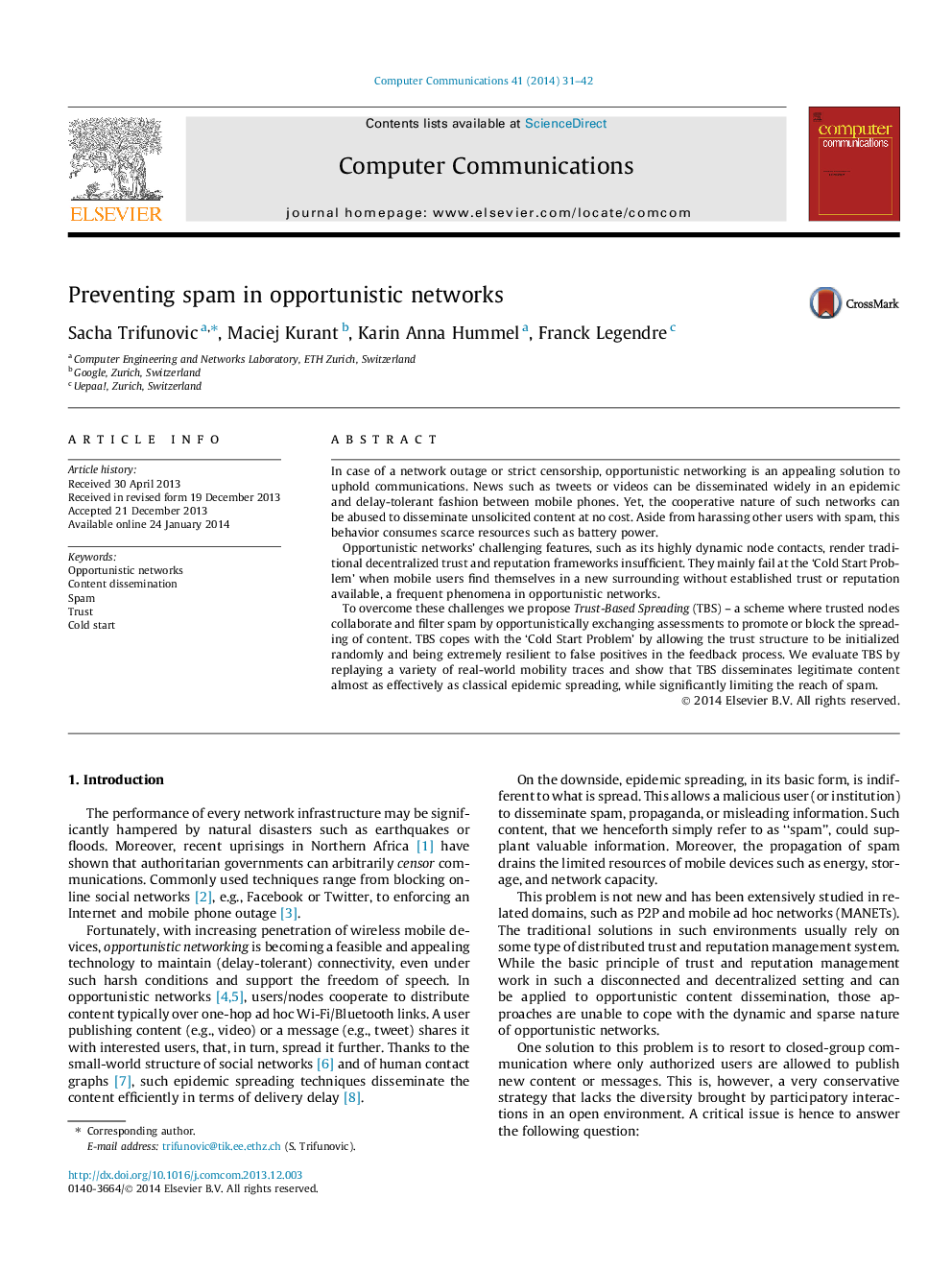| کد مقاله | کد نشریه | سال انتشار | مقاله انگلیسی | نسخه تمام متن |
|---|---|---|---|---|
| 447917 | 693504 | 2014 | 12 صفحه PDF | دانلود رایگان |
In case of a network outage or strict censorship, opportunistic networking is an appealing solution to uphold communications. News such as tweets or videos can be disseminated widely in an epidemic and delay-tolerant fashion between mobile phones. Yet, the cooperative nature of such networks can be abused to disseminate unsolicited content at no cost. Aside from harassing other users with spam, this behavior consumes scarce resources such as battery power.Opportunistic networks’ challenging features, such as its highly dynamic node contacts, render traditional decentralized trust and reputation frameworks insufficient. They mainly fail at the ‘Cold Start Problem’ when mobile users find themselves in a new surrounding without established trust or reputation available, a frequent phenomena in opportunistic networks.To overcome these challenges we propose Trust-Based Spreading (TBS) – a scheme where trusted nodes collaborate and filter spam by opportunistically exchanging assessments to promote or block the spreading of content. TBS copes with the ‘Cold Start Problem’ by allowing the trust structure to be initialized randomly and being extremely resilient to false positives in the feedback process. We evaluate TBS by replaying a variety of real-world mobility traces and show that TBS disseminates legitimate content almost as effectively as classical epidemic spreading, while significantly limiting the reach of spam.
Journal: Computer Communications - Volume 41, 15 March 2014, Pages 31–42
